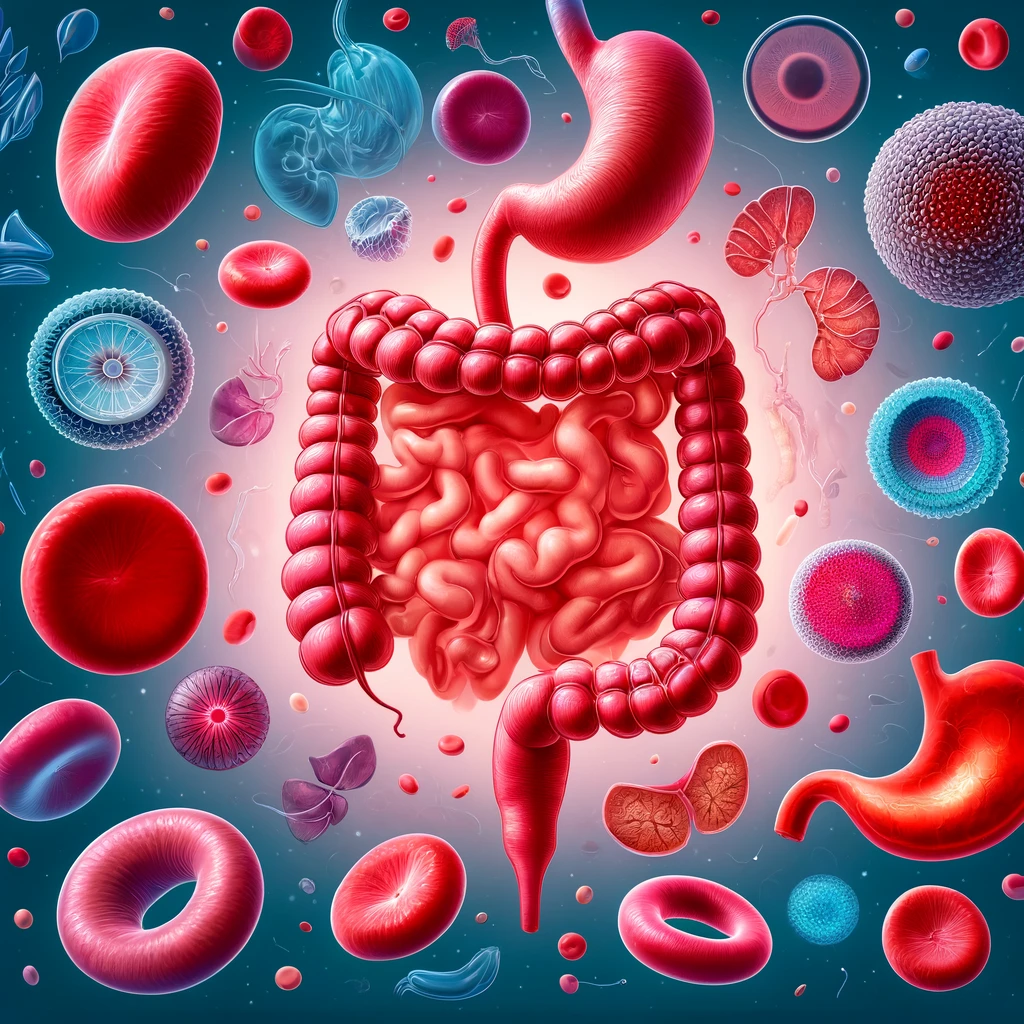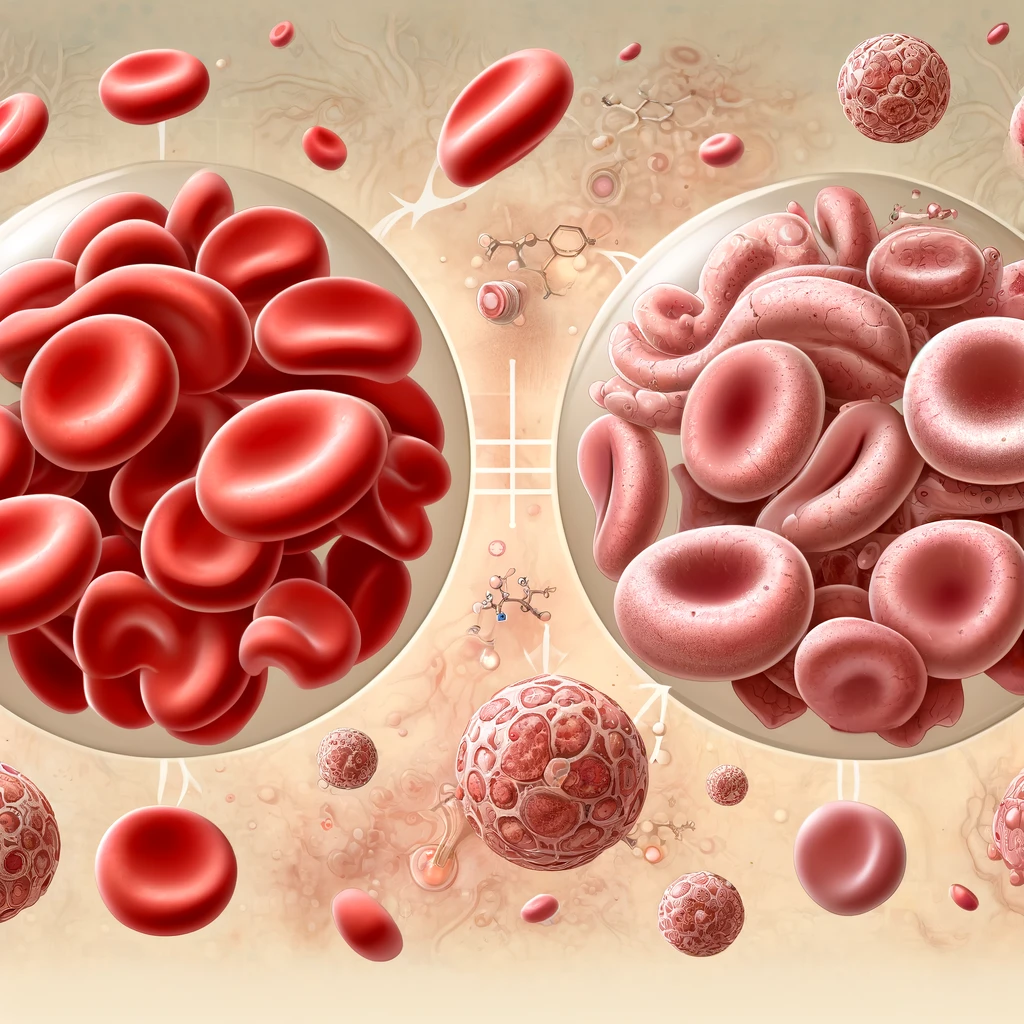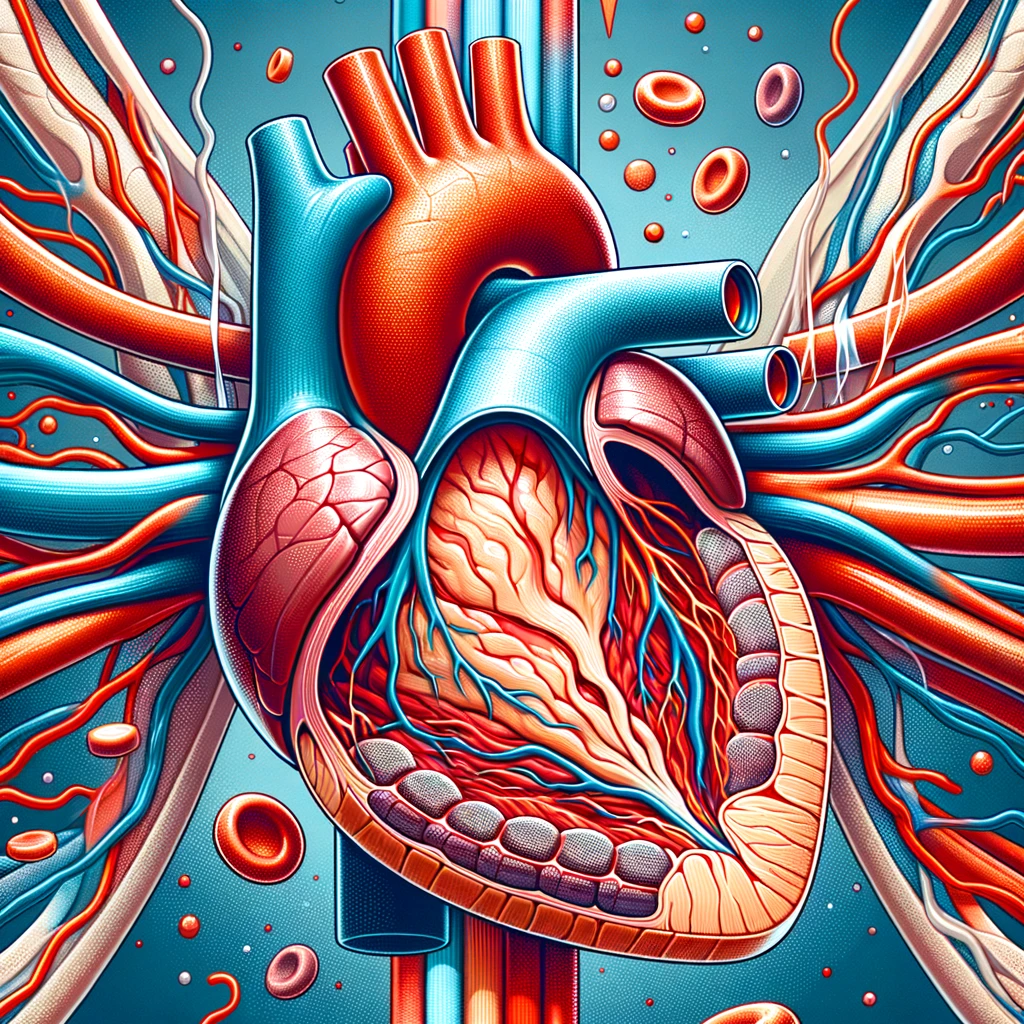
Vitamin B12 Deficiency
Vitamin B12 which is also known as Cobalamine is a water-soluble vitamin and can be derived from animal products such as red meat, dairy products, and eggs.
Intrinsic factor is a glycoprotein which is produced in parietal cells in the stomach and is essential for the absorption of Vitamin B12 in the terminal ileum.
Once the Vitamin B12 is absorbed, it plays a key role as a cofactor in the synthesis of DNA, fatty acids or myelin. Therefore, Vitamin B12 deficiency could lead to both hematologic and neurologic symptoms.
Vitamin B12 is stored in liver in high amounts. However, prolonged periods where Vitamin B12 cannot be absorbed, levels of vitamin B12 decrease sharply in liver too and deficiency occurs.
There are three key factors in the etiology of Vit. B12 Deficiency:
Auto-immune: Pernicious anemia is an autoimmune disorder, in which the body develops antibodies against the intrinsic factor. This produced antibody binds to intrinsic factor and inhibits it, thereby preventing the absorption of vitamin B12 in the intestines.
Malabsorption: Parietal cells in the stomach produce intrinsic factor, therefore patients who have undergone a gastric or intestinal surgery, the areas where these cells are produced could be damaged, therefore negatively affecting the absorption of vitamin B12. Also, some disorders such as Crohn’s disease or celiac disease or an infection could also affect the absorption of vitamin B12.
Vegan diet: Patients who follow a strict vegan diet is likely to develop vitamin B12 deficiency three years later due to lack of dietary intake.
Symptoms of vitamin B12 deficiency:
- Megaloblastic anemia like symptoms Inflammation of tongue
- Low levels of white and red blood cells Fatigue
- Palpitations Dementia
- Weight loss Infertility
- Numbness or Tingling of hands or feet
Treatment of vitamin B12 deficiency:
The main goal in the treatment of vitamin B12 deficiency is to replete with vitamin B12. However, not all the same treatment and the duration of treatment apply for the patients. The selection of the treatment type depends on the etiology of the disease.
To give an example, a patient ,who has a strict vegan diet, is likely to be given oral vitamin B12. On the other hand though, giving oral vitamin B12 to patients with deficiency of intrinsic factor would be meaningless, as the patient is not likely to absorp the given vitamin. Thus, parenteral vitamin B12 is preferred, the recommended dose is 1000 microgram per month, intramuscularly.
Patients who are at high risk of developing vitamin B12 deficiency, such as Crohn’s disease or Celiac disease, should have their vitamin B12 levels checked regularly. When there is a drop in vitamin B12 levels, the treatment should be begun. However, it is interesting to note that there is no prophylactic treatment for vitamin B12 deficiency unless the levels of vitamin B12 are dropped.
Resources:
U.S. Department of Health and Human Services. (n.d.). Office of dietary supplements – vitamin B12. NIH Office of Dietary Supplements. https://ods.od.nih.gov/factsheets/VitaminB12-HealthProfessional/
Ankar A, Kumar A. Vitamin B12 Deficiency. [Updated 2022 Oct 22]. In: StatPearls [Internet]. Treasure Island (FL): StatPearls Publishing; 2023 Jan-. Available from: https://www.ncbi.nlm.nih.gov/books/NBK441923/
Iron Deficiency and Iron Deficiency related anemia contributes to several diseases worldwide. In 2016, more than 1.2 billion cases of iron deficiency anemia were reported. Iron deficiency anemia affects children, women in pre-menopause and people in low and middle income countries more.
In the ever-evolving landscape of healthcare, the discipline of pharmacoeconomics has emerged as a vital tool for maximizing the value of healthcare resources and optimizing patient outcomes.
Myocardial infarction or acute myocardial infarction are the other terms for heart attack. The heart attack occurs when the blood supply to some certain areas to heart is disrupted and the heart muscle lacks oxygen and therefore gets damaged. In coronary arteries, which supply the heart, sometimes an obstruction may also occur. What this means is that an unstable plaque that consists of fat, cholesterol and white blood cells is formed and obstruct the vessel.
In the realm of healthcare, effective communication is paramount, especially when it comes to ensuring therapeutic safety for patients.




